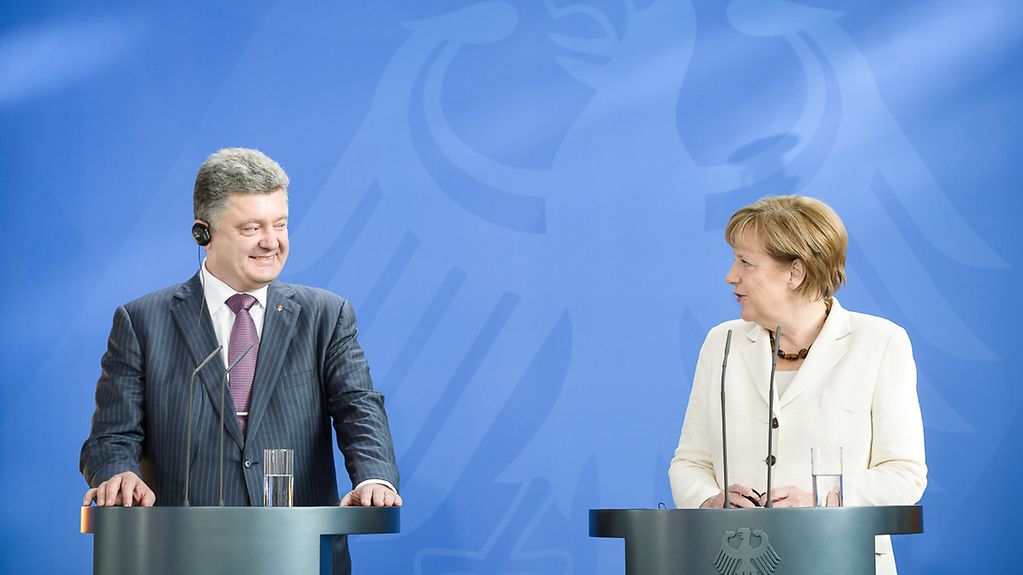Angela Merkel meets Petro Poroshenko
A whole series of challenges await the future Ukrainian president. Germany would like to help maintain the country’s territorial integrity, said Chancellor Angela Merkel during the visit to Berlin of the President-elect of Ukraine, Petro Poroshenko.
3 min reading time

Chancellor Angela Merkel received the future Ukrainian President Petro Poroshenko at the Federal Chancellery
Photo: Bundesregierung/Steins
Angela Merkel praised the free and fair elections in Ukraine. Under extremely difficult conditions, the people of Ukraine went to the polls to cast their votes in the presidential elections. The clear mandate accorded to Petro Poroshenko as future President of the country in the first round of voting demonstrates that the people want to see a swift stabilisation of the situation. "We would like to help and to stand by them as a friend who would like to see positive development in Ukraine," said the Chancellor.
Petro Poroshenko is to be sworn in next Saturday as Ukraine’s new President. He thanked the Chancellor for Germany’s support within the framework of the European Union and the G7, in securing the sovereignty and integrity of Ukraine. "I also thank Germany for its ongoing support in reforming Ukraine’s economy," said the President-elect. "Our next steps will be to tackle corruption, reform our courts, decentralise state authority and other measures."
G7 concerned about situation in Ukraine
The day before, the G7 heads of state and government had looked with concern at the destabilisation in south-eastern Ukraine at their summit meeting in Brussels. In a joint statement, they advocated further cooperation with Ukraine and condemned the persisting violation of the sovereignty of the country by the Russian Federation.
In a government statement on Wednesday, Chancellor Angela Merkel made it quite plain why Russia was not invited to the meeting of the leading industrialised nations in Brussels. Russia’s actions in annexing Crimea, said the Chancellor, have made it necessary to do without Russia’s participation in the G8 summit meeting. The G8, she explained, is not only an economic group, but a community of values. "This absolutely includes respecting international law," said Angela Merkel.
Russian contribution to de-escalation
In Brussels the Chancellor underlined the fact that Russia must do its bit to stabilise and de-escalate the situation in Ukraine. The Russian side must also be ready to cooperate with the new Ukrainian President.
"Russia has said that it will respect the outcome of the elections. But, this must be followed by the next steps once the new President has taken office, now that the OSCE has also recognised the elections," stated Angela Merkel.
Russia, said the Chancellor, must prevent the flow of separatists and weapons across the Russian-Ukrainian border, and come to an agreement with Ukraine over gas supplies. An agreement must be possible with EU involvement.
Agreement on three main points
Angela Merkel once again underscored the principles of the common policy on Ukraine. Firstly, Ukraine must be given support on economic matters. Secondly, talks must be held with Russia about the necessary steps in the crisis.
The third point stipulated by the Chancellor was, "that if there is no progress on the questions that are still to be resolved, the option of sanctions is still on the table, including severe stage-three sanctions." A high level of agreement existing among the G7 nations on all these points.
The Chancellor announced that the Council meeting at the end of June would once again take stock of the situation.